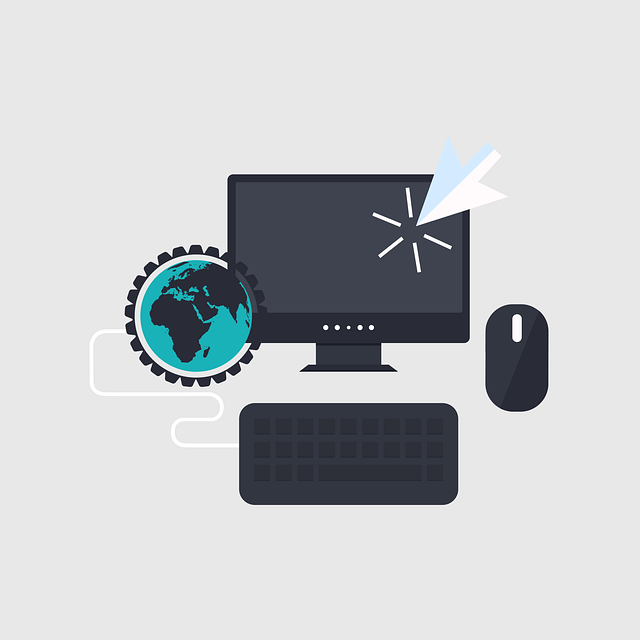AI ghost kitchen mobile apps are transforming food delivery through advanced algorithms, with a key feature being AI route delay forecasting. This technology analyzes historical data, traffic, construction zones, and weather to predict and minimize delivery delays. The integration engines act as central hubs, connecting customer apps, restaurant systems, and logistics platforms for seamless data exchange. By leveraging AI for route optimization and predictive analytics, these apps enhance operational efficiency, customer satisfaction, and overall experience in the fast-paced ghost kitchen model.
“The future of food delivery is here with AI ghost kitchen mobile apps, revolutionizing the way we order and receive meals. This cutting-edge technology integrates advanced integration engines to streamline operations for both restaurants and customers.
In this digital era, understanding AI ghost kitchens’ potential is vital. We explore how these apps optimize routes using AI route delay forecasting, ensuring efficient deliveries and enhanced customer satisfaction. Get ready to delve into the seamless world of food tech.”
- Understanding AI Ghost Kitchen Mobile Apps
- The Role of Integration Engines in Seamless Operations
- AI Route Delay Forecasting: Enhancing Efficiency and Customer Experience
Understanding AI Ghost Kitchen Mobile Apps

AI ghost kitchen mobile apps are transforming the food delivery landscape by optimizing operations and enhancing customer experiences. These applications leverage advanced algorithms to streamline various processes, from order management to route planning. One key aspect where AI excels is in predicting and minimizing AI route delay forecasting. By analyzing historical data, traffic patterns, and real-time conditions, these apps can calculate the most efficient routes for delivery drivers, reducing delays and ensuring timely food delivery.
This technology goes beyond simple navigation by considering factors like road congestion, construction zones, and even weather conditions. Such sophisticated route optimization not only benefits restaurants and couriers but also customers, who receive their orders faster. This efficiency is particularly crucial in the fast-paced ghost kitchen model, where quick response times are vital to maintaining customer satisfaction and business competitiveness.
The Role of Integration Engines in Seamless Operations

The heart of a successful ghost kitchen lies in its ability to streamline operations, from order processing to delivery. This is where integration engines play a pivotal role. These sophisticated software solutions act as the backbone, connecting various components of the AI-driven ghost kitchen ecosystem, such as customer apps, restaurant management systems, and logistics platforms. By facilitating seamless data exchange, integration engines ensure that critical processes like inventory management, order allocation, and real-time route planning operate without a hitch.
One of the key advantages lies in AI route delay forecasting, which leverages historical data and predictive analytics to optimize delivery routes. Integration engines seamlessly feed this information into the overall operational workflow, minimizing delays and enhancing customer satisfaction. This level of integration ensures that every aspect of the ghost kitchen’s operation is harmoniously aligned, fostering efficiency, accuracy, and a superior user experience.
AI Route Delay Forecasting: Enhancing Efficiency and Customer Experience

AI ghost kitchen mobile app integration engines leverage advanced algorithms for AI route delay forecasting, significantly enhancing both operational efficiency and customer satisfaction. By predicting potential delays based on real-time data, historical trends, and external factors like traffic conditions, these systems enable restaurants to optimize delivery routes dynamically. This proactive approach ensures that food reaches customers in the quickest time possible, minimizing wait times and maximizing the overall dining experience.
Moreover, accurate AI route delay forecasting allows ghost kitchen operators to better manage their fleets, resources, and partnerships with delivery personnel. By anticipating delays, they can proactively adjust schedules, reallocate resources, and communicate potential delays to customers, ensuring transparency and setting realistic expectations. This not only improves operational resilience but also fosters trust between the brand and its clientele.
AI ghost kitchen mobile apps are transforming the food delivery landscape, and integration engines play a pivotal role in ensuring seamless operations. By leveraging AI for route delay forecasting, these apps can optimize delivery times, enhance customer satisfaction, and ultimately drive business growth. The future of food delivery looks promising, with technology at its core, making every meal a timely and enjoyable experience.
